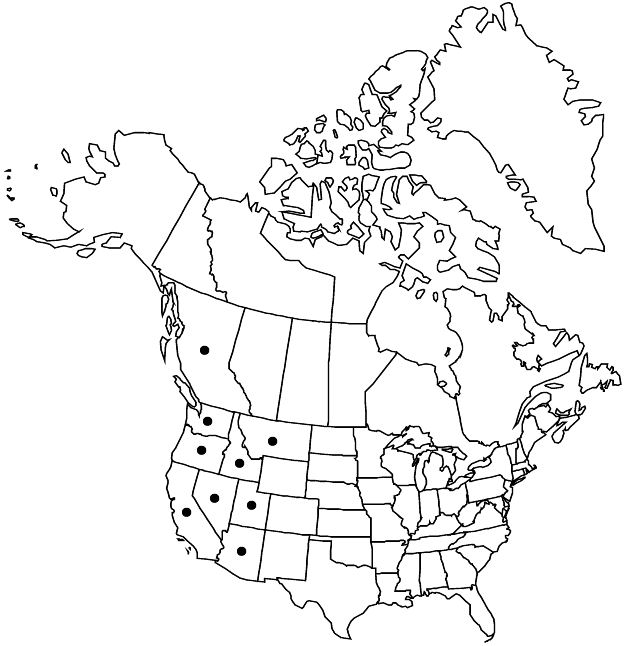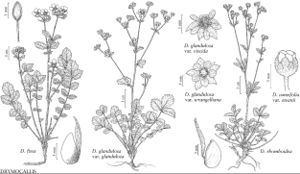Drymocallis glandulosa var. glandulosa
Stems 2–6 dm, base 2–3(–4) mm diam. Leaves: basal (5–)10–25 cm, leaflet pairs (1–)2–3(–4); terminal leaflet obovate to nearly round, 2–6(–8) × (1–) 2–5 cm, teeth double, 7–15(–20) per side, apex obtuse to rounded; cauline well developed, leaflet pairs 1–3. Inflorescences 5–40-flowered, ± to very leafy, wide, branch angles (20–)30–50°. Pedicels 1–5 (proximal to 30) mm. Flowers: epicalyx bractlets linear-lanceolate to elliptic, 2–6(–8) × 0.5–2 mm; sepals spreading, 4.5–10 mm, apex ± obtuse, mucronate; petals spreading, usually ± yellow, sometimes cream-white, obovate-elliptic to nearly round, (3–)3.5–5 × (2–)3–4 mm; filaments (0.5–)1–2 mm. Achenes 1–1.4 mm. 2n = 14.
Phenology: Flowering (Mar–)Apr–Jul.
Habitat: Open slopes, stream banks, road banks, shrublands, open woodlands
Distribution

B.C., Ariz., Calif., Idaho, Mont., Nev., Oreg., Utah, Wash.
Discussion
Variety glandulosa is the most widespread variety of Drymocallis glandulosa and the primary one occurring outside of California. It is most common away from the coast from southern British Columbia to central California, with scattered (and possibly introduced) collections known from Idaho, Montana, Nevada, and Utah. Disjunct, consistently white-petaled populations in Arizona south of the Mogollon rim may represent a distinct variety.
Selected References
None.
